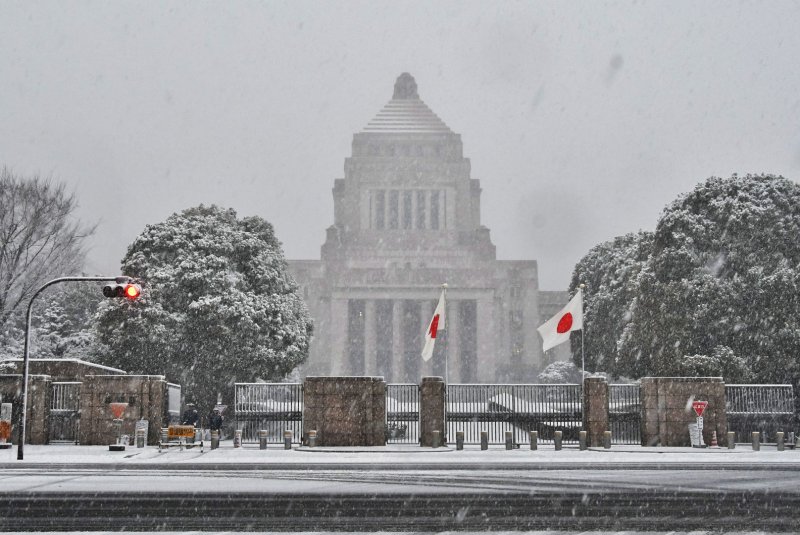Kuwait said it's sending more oil to Japan, but that masks declines from other exporters. The IMF sees retraction for Japan next year. File photo by Keizo Mori/UPI |
License Photo
Feb. 1 (UPI) -- Kuwait, the fourth-largest crude oil exporter to Japan, said Thursday that December levels were more than 30 percent higher than at the same time in 2016.
Kuwait said through its official news agency, KUNA, that its exports to Japan in December averaged 233,000 barrels per day, a 32.2 percent increase from December 2016 and the second straight month for an increase. Total shipments from Middle East suppliers account for 87 percent of total Japanese oil imports.
Japan's economy is on a growth trajectory, though growth in third quarter gross domestic product of 2.4 percent was slower than the second quarter rate of 2.9 percent. Growth is expected to continue, though headwinds are building for one of the world's major economies.
Economists at the Organization of Petroleum Exporting Countries said a government-led stimulus effort is supporting growth, but it remains to be seen for how long.
"Moreover, as the economy seems to have reached its short-term growth potential, the upside from the currently strong growth levels is limited," OPEC's monthly market report from January read.
In late January, the Bank of Japan voted 8-1 to apply a negative interest rate to its policy rate and OPEC economists said the rate may be so low it can't stimulate the economy any further. In its global outlook, the International Monetary Fund said Japan's economy could experience negative growth by next year.
An island nation, Japan relies heavily on exports to meet energy demand. Fossil fuel use surged after a 2011 nuclear disaster forced the shutdown of all of its reactors.
KUNA reported that total crude oil imports for Japan declined 2.4 percent year-over-year to 3.53 million barrels per day, its first decline in two months. Saudi Arabia is the No. 1 oil supplier and its exports dropped almost 1 percent in December to 1.42 million barrels per day.
For natural gas, Russia is a main supplier in the form of liquefied natural gas, though demand there may be limited as well. With its weaker economy, Japan's consumption of electricity has declined for five straight years.















